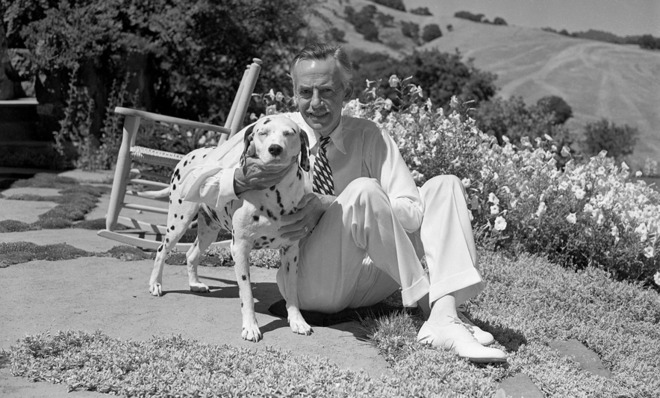Remembering Arthur Gelb and his great biographical subject, Eugene O'Neill
Gelb is most famous for helping lead The New York Times. But his biographies of O'Neill, written with his wife, are an immense part of his legacy as well.


A free daily email with the biggest news stories of the day – and the best features from TheWeek.com
You are now subscribed
Your newsletter sign-up was successful
It's perfectly understandable that obituaries marking the death of Arthur Gelb would highlight his many influential years at the helm of The New York Times. But the first thing I thought of when I heard news of his passing was that the great biographer of Eugene O'Neill had died.
Playwright Tony Kushner has called O'Neill "our Shakespeare," and I quite agree. Not that the plays of O'Neill, viewed as a whole, can really be said to match or surpass the almost supernatural poetic and dramatic perfection found in Shakespeare's corpus. But O'Neill consistently strove to create a distinctively American form of tragic drama, and at his best — above all in Long Day's Journey Into Night and The Iceman Cometh — he achieved it on a Shakespearean level. No one in our history has come close to outshining him.
Together with his wife Barbara Gelb, Arthur Gelb published two substantial biographies of the Nobel Prize-winning playwright: a nearly 1,000-page volume titled simply O'Neill (1962), which was based on more than 400 interviews, and O'Neill: Life with Monte Cristo (2002), which revised, updated, and expanded on the sections of the original book that dealt with the playwright's youth and earliest plays. A second updated volume, By Women Possessed, which pushes further into O'Neill's life and career, had been promised for years and is apparently now scheduled to appear in 2015. (Here is a video of Arthur and Barbara Gelb discussing their decades-long focus on O'Neill.)
The Week
Escape your echo chamber. Get the facts behind the news, plus analysis from multiple perspectives.

Sign up for The Week's Free Newsletters
From our morning news briefing to a weekly Good News Newsletter, get the best of The Week delivered directly to your inbox.
From our morning news briefing to a weekly Good News Newsletter, get the best of The Week delivered directly to your inbox.
Both published books are biographical masterpieces, overflowing with insights into the man and his art. But for my money, Gelb's most enduring contribution to our understanding of O'Neill may end up being his work as writer and adviser (again in partnership with Barbara) on Eugene O'Neill: A Documentary Film, perhaps the greatest entry in the distinguished American Experience series on PBS.
Directed by Ric Burns and first broadcast in 2006, the film mixes historical biography, analytical interviews, and electrifying readings of key scenes from O'Neill's most magnificent plays by such actors as Al Pacino, Christopher Plummer, Robert Sean Leonard, Zoe Caldwell, and Liam Neeson. It also includes interview clips with actor Jason Robards, foremost interpreter of O'Neill's iconic male leads, recorded shortly before his death in 2000.
I've watched the film many times over the years, and recommended it to some of my closest friends. Its reflections on O'Neill's anguished struggles with family, love, loss, guilt, faith, and emotional and physical pain — and on how he transformed those struggles into art of the highest order — never fail to move and inspire me.
The film, like the books, is an important and lasting gift to our culture — one for which we will remain in Arthur Gelb's debt for as long as serious art continues to matter to Americans.
A free daily email with the biggest news stories of the day – and the best features from TheWeek.com
Damon Linker is a senior correspondent at TheWeek.com. He is also a former contributing editor at The New Republic and the author of The Theocons and The Religious Test.
-
 James Van Der Beek obituary: fresh-faced Dawson’s Creek star
James Van Der Beek obituary: fresh-faced Dawson’s Creek starIn The Spotlight Van Der Beek fronted one of the most successful teen dramas of the 90s – but his Dawson fame proved a double-edged sword
-
 Is Andrew’s arrest the end for the monarchy?
Is Andrew’s arrest the end for the monarchy?Today's Big Question The King has distanced the Royal Family from his disgraced brother but a ‘fit of revolutionary disgust’ could still wipe them out
-
 Quiz of The Week: 14 – 20 February
Quiz of The Week: 14 – 20 FebruaryQuiz Have you been paying attention to The Week’s news?
